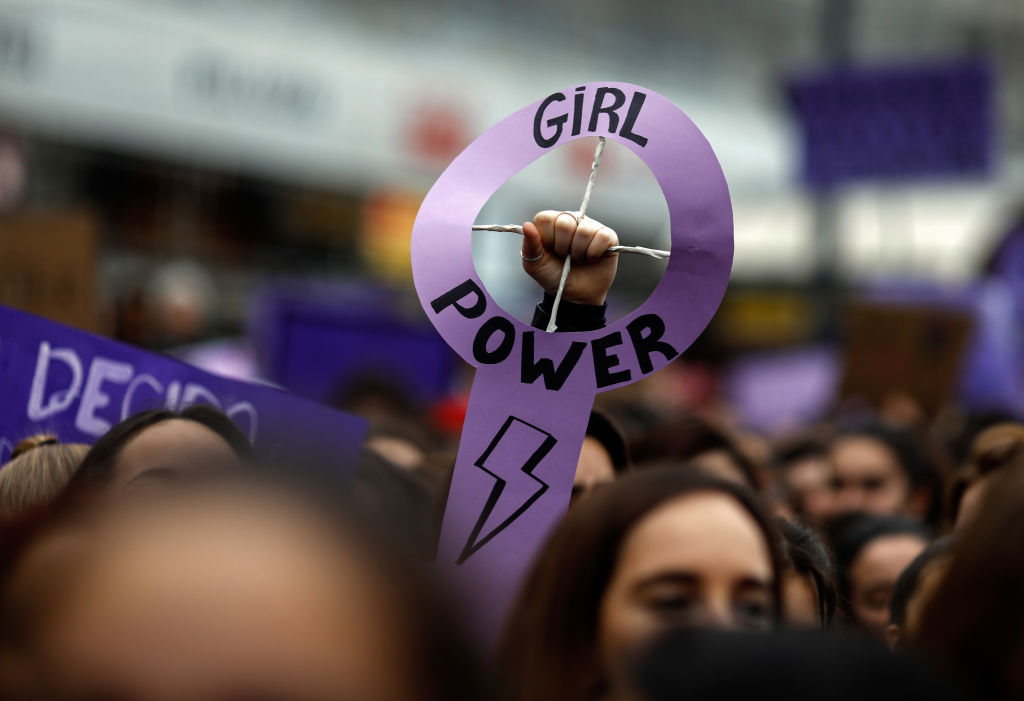Why don’t we have a minister for men? That’s the question Tory MP Ben Bradley asked this week, and he’s found himself the centre of a great deal of social media fury for doing so. I say ‘found himself’, but it’s highly unlikely Bradley really thought anything else was going to happen, not least because he made this call during a backbench debate he had organised with his Conservative colleague Philip Davies, who has a specialism in winding people up.
In that debate, Bradley argued that ‘men are talked about, all too often, as a problem that must be rectified’, and complained that the equalities agenda seemed to exist to exclude them, rather than help with their specific problems such as higher rates of suicide and lower educational attainment. He said:
‘What more can we in this place do? For starters, we can change the discourse here. Can we look again at equalities legislation? If we are to hold departments across Whitehall to account, with people dedicated to ensuring – quite rightly – that women are considered, why not do the same for men? Why have a Minister for Women, but not one for men? Why single out one characteristic for a special mention?’
Bradley covered some very important issues in his speech. He pointed to the fact that boys now have lower educational attainment, to three times as many men as women dying by suicide, higher rates of mental illness, rough sleeping and addiction. ‘These figures really put that male privilege in perspective,’ he said.
It is worth taking these points seriously: I did when I wrote a cover piece on the matter for The Spectator six years ago. Back then, I spoke to notorious men’s rights activist and right-wing wind-up merchant Diane Abbott about her own campaign on what she called a ‘crisis of masculinity’, and we agreed that this crisis did not just have a negative impact on men themselves but on the women in their lives who are overwhelmingly the victims of domestic and sexual violence, for example.
Both of us believe that women have historically been oppressed by a patriarchal society and that this oppression has in no way ended today. But at the time, the response was one of fury, too: some readers seemed to think we were suggesting that women had enjoyed their moment of sympathy and it was time for the men to get a look in.
The problem both with Bradley’s approach and also the reaction that always follows arguments such as his is that too many people seem to have that see-saw view of gender-specific problems. If someone is worried about women, then they must of course be ignoring men. If someone suggests that figures on male health and educational attainment mean something is going wrong that ministers aren’t addressing, then they are somehow pushing women back down again.
There is no reason to doubt Bradley’s sincerity, but he appears to have fallen into the same ‘what about’ trap rather than feeling that his arguments can stand alone without reference to women getting too much attention. The ‘what about’ line of argument always treats men’s and women’s problems as separate, rather than as part of the same overall problem. Society expects men to be so strong that they control women and never need any support themselves. No wonder, as Abbott rightly pointed out, we end up with a ‘toxic masculinity’ rather than a healthy one. It is this toxic cultural norm that is killing both men and women. There is no research suggesting that it is women who are making men kill themselves. It is, however, rather better established that men are killing women. Both are victims of toxic masculinity.
In the years after I wrote the Save the Male! piece, I’ve spent a lot of my spare time fundraising for domestic abuse charity Refuge, whose slogan is ‘until women and children are safe’. I’ve lost count of the number of men who have either approached me at sports events or (more commonly) sent me messages on social media asking me why I wasn’t fundraising for men.
Initially I was bewildered by this: it hadn’t occurred to me to complain to my friends who were doing Breast Cancer Research’s Race for Life that they’d ignored the sufferers of prostate and testicular cancer. Then I found it interesting to ask these fellows what they were doing to raise money for male victims of violence. I even set up a fundraising page for a charity which helps male victims of domestic abuse so that those who found it irritating that I was running the London Marathon for Refuge could donate to their preferred gender. Strangely, there were far fewer donors than there were men complaining (I raised £20,000 for Refuge, and just £330 for Respect). It’s almost as if the ‘what about the men’ argument isn’t always used with the good faith intentions of actually helping men that it seems.
As it happens, I still think there should be a minister for men, but not just for the serious reasons I set out back in 2014. It would also mean that the ‘what about’ brigade would either have to work much harder to make disingenuous arguments – or that they’d have to do something concrete themselves before complaining about the attention lavished on the opposite sex. What about that, then?







Comments